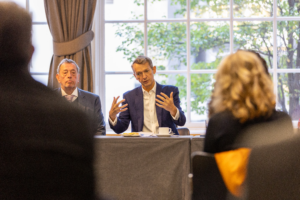New course throws light on the early history of Britain
Online course offers the chance to be amongst the first to study 2,000 year old cremated remains from Roman Britain and to learn about the origins of the people of Colchester, its first capital.
Colchester Museums and the University of Reading’s Department of Archaeology to launch Dead Interesting: Uncovering Roman Britain in Old Museum Collections on the leading social learning platform FutureLearn.
This free online course has been part funded by Arts Council England. Aimed at an 18-30 audience who are interested in studying archaeology at Undergraduate or Postgraduate level, it will also appeal to anyone with a keen interest in history and archaeology, particularly Roman Britain. Participants can learn in their own time, at their own pace, on any device with an internet connection. The course is designed to last two weeks with a recommended study of two hours per week.
The course content will draw upon latest research that Colchester Museums and the University of Reading have undertaken during 2021, which delves into the intricacies of life and death in Roman Colchester.
By examining cremation burials (consisting of both cremated bones and associated artefacts) from Colchester Museum’s vast collections, the research team has applied new archaeological techniques such as isotope analysis and modern Osteoarchaeology. This has enabled curators and academics from both institutions to discover more about the lives of some of the earliest Romano-Britons.
Participants will join the research team to uncover incredible facts about a single individual whose life ultimately ended in Roman Colchester. Over the duration of the course the participant will be able to use their new osteoarchaeological knowledge to build up a profile of who this person was – their age, sex, origin and status.
The course will also touch on Roman attitudes to death and burial processes. The highly engaging course will feature behind the scenes videography showing expert analysis filmed at Colchester Museums stores as well as articles written by the wider research team.
Glynn Davis, Senior Collections and Learning Curator at Colchester Museum says, “This is an incredible opportunity for individuals to get beneath the skin of Roman Britain. Who were the individuals that ultimately ended their lives in Roman Colchester? Using cutting edge osteoarchaeological techniques we have been able to work alongside our peers at the University of Reading to truly bring Roman Colchester to life.”
Professor Hella Eckardt, Professor of Archaeology, University of Reading says, “We have long known about mobility and migration from inscriptions on stone, but this course allows learners to uncover the information that can be unlocked from human remains and artefacts, painting a much richer picture of what life was like at the edge of the Roman Empire in the first century AD.”
Upon completion of the course, learners will have the opportunity to pay for upgraded access for as long as it exists on the platform. Learners also have the chance to earn a Certificate of Achievement to demonstrate their completion of the course, once eligible.
Current University of Reading students will be able to obtain the benefits of the FutureLearn upgrade for free as part of FutureLearn Campus. Students must use their University of Reading email address.
Dead Interesting: Uncovering Roman Britain in Old Museum Collections launches today; /courses/dead-interesting
ENDS
—————————————————————————————————————
Notes to Editors
Colchester Museums
For further information on information included in this release please contact communications@colchester.gov.uk or 078150 88150
www.cimuseums.org.uk
University of Reading
For further information included in this release please contact pressoffice@reading.ac.uk or 0118 378 5757
FutureLearn
Here at FutureLearn, our purpose is to transform access to education. We do that by partnering with over a quarter of the world’s top universities to support millions of learners across the globe to develop skills and achieve their personal and professional goals. We’re a leading social learning platform founded in December 2012 by The Open University and are now jointly owned by The Open University in the UK and The SEEK Group. We use design, technology and partnerships to create enjoyable, credible and flexible short online courses and microcredentials, as well as undergraduate and postgraduate degrees. In addition to top universities, we also partner with leading organisations such as Accenture, the British Council, CIPD, Raspberry Pi and Health Education England (HEE), as well as being involved in government-backed initiatives to address skills gaps such as The Institute of Coding and the National Centre for Computing Education.
The Research Team
The course is a collaboration between the University of Reading and Colchester + Ipswich Museums. It has been developed by the lead members of the wider research team, together with the Online Courses Team at the University of Reading.
Professor Hella Eckardt, Professor of Archaeology, University of Reading. Hella works on the archaeology of Roman Britain and has led research on migration and mobility using both artefacts and isotope analysis.
Dr Glynn Davis, Senior Collections and Learning Curator at Colchester Museum
Dr Carolina Lima, Curator at Colchester Museum.
Dr Frank Hargrave, Manager at Colchester and Ipswich Museums
Dr Emily Carrol, Osteologist specialising in Roman cremations
Online Courses at the University of Reading
The University of Reading’s courses have reached more than 1.4 million people from over 190 countries since October 2013. Sharing expertise in online learning design and insight gained from producing more than 30 public facing courses, the Online Courses team works collaboratively with academic experts and students throughout the University, as well as prestigious external partners such as the British Council, EIT Food and the Royal Meteorological Society. Designed to reach new audiences, our courses provide a window into the wealth of subjects on offer at Reading, whilst retaining the high quality expected of a world-class university.


